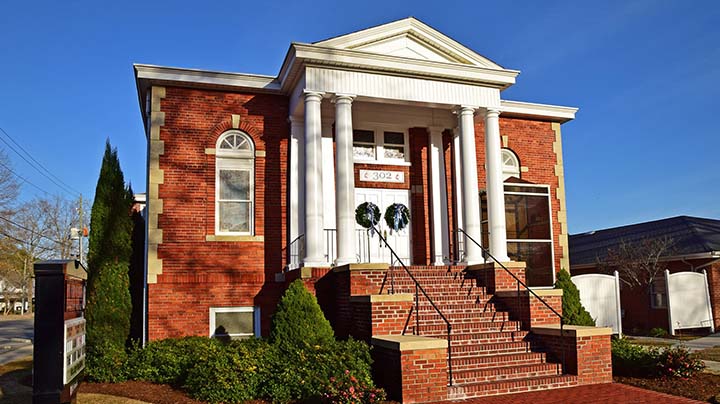
At Four Oaks UMC, our theme for this year is guided by Philippians 1:7, where Paul commends us to, “share in God’s grace.” We are celebrating how God has been gracious to us and then being intentional about sharing God’s grace with others. When we are attentive, we find God’s grace all around us. In the loveliness of creation, through the hope of forgiveness, and by the beauty of the image of God uniquely shown through each and every one of us, God’s grace is abundant.
The congregation at Four Oaks UMC recognizes that grace, and because of it, we want to share it with others. This has been fruitful for us and for God’s glory. Recently, some folks from disaffiliated churches nearby have come to worship with us, as a Lighthouse Church remaining United Methodists. These visitors felt like we wanted them to be here. All of this happened because we were just nice, we showed gracious hospitality, and we shared God’s grace with them when they showed up.

For a while now, I have been telling people that the world needs the United Methodist Church, North Carolina needs the United Methodist Church, and Four Oaks needs our United Methodist Church. On that Sunday when we had visitors from disaffiliated churches visit our worship service, it was January 8th, when we remembered the Baptism of Jesus. During worship, we dipped our hands in the baptismal font and remember our own baptism, and I invited people down to the altar to pray. After we had worshipped together, one of our visitors told me that they felt like they were at home and that they would be back. They have been back almost every Sunday since.
After a disaffiliated church left them feeling lost in the wilderness, sharing in God’s grace made them feel at home. During this Lent, may we all “share in God’s grace” for our world, for our communities, and for the people like us that need God’s grace and need the United Methodist Church.
Loving God, guide us and strengthen us to be lighthouses of gracious hospitality. May we “share in God’s grace” so that all feel at home. Amen.
Rev. Adam Charville serves as the pastor of Four Oaks UMC in Four Oaks, NC.
Our theme for this year’s Lenten reflections is Graceful Hospitality. 2023 marks the 70th anniversary of the Ten Dollar Club, now known as the New Room Society. We give thanks for our Conference’s ongoing commitment to co-creating new places for new people to gather in communion with Jesus Christ and extending graceful hospitality to all of God’s children.
